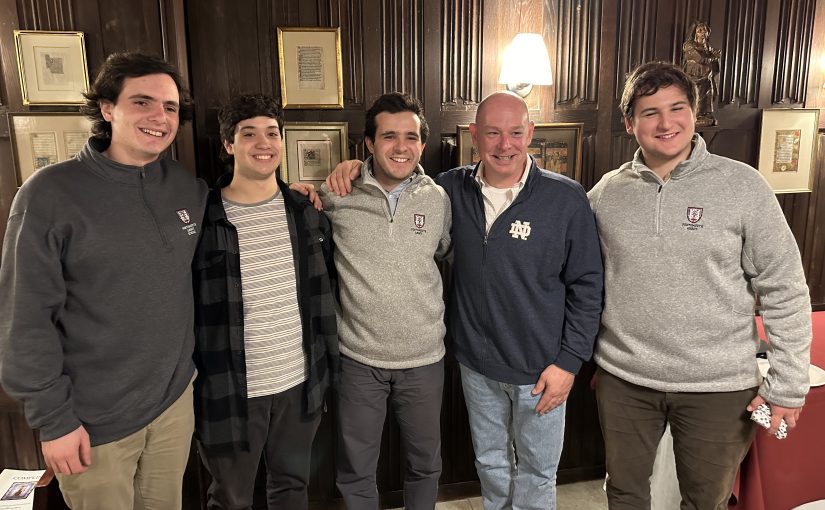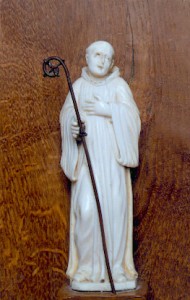For nearly two decades plus some years the Manquehue Apostolic Movement (MAM) has been active ministering at Portsmouth Abbey and School and the Priory School at St. Louis Abbey. The lay men and women of the MAM some of the best people I’ve met over the years who are part of a group at the service of the Gospel and the Benedictine charism.
For those who don’t know the Manquehue Apostolic Movement it was founded in 1977 first as an Association of Lay Faithful according to the Code of Canon Law (1983) in the Archdiocese of Santiago de Chile. By 1994 the Movement was granted a firmer position in the Church by becoming a juridic personality in Law.
The Movement is composed of laity. There are no clerics who are members of the Movement. Yet they have had a strong and influential presences of Benedictine monks who have given good witness to the Benedictine way of proceeding. In many ways one can say that members of the Manquehue Apostolic Movement are lay Benedictines, similar but not the same as an Oblate’s call to relate to a monastery.
I have met over then years several members of the MAM at both noted abbeys but have been in touch with them mostly at Portsmouth in years. This year I had the privilege of meeting the men seen in the above picture: Martín, Mattias, Nico and Vicente. All four these guys inspire me. All graduates of the MAM school in Santiago and currently doing university studies having just finished two months of missionary work among the students at Portsmouth Abbey school. They are great young men who made an impact on many of us.
The work of the of the Movement is the prayerful reading of sacred Scripture – also called Lectio Divina. This is closely linked to the teaching and witnessing to the spirituality of St Benedict and 1500 years of life of monks, nuns, sisters and laity. In Santiago de Chile, Manquehue runs three schools and guides more that 100 weekly Lectio Divina groups. And probably one of the most impressive charitable works is a hostel for homeless women. You can find the Movement also at the end of the world –or near the end of the world– in Patagonia, in the south of Chile where there’s a retreat house. I am scheming to have a Manquehue community in the Providence, Rhode Island Diocese and close to Portsmouth Abbey.
Some members of the Manquehue Movement make an oblation to live the charism of the movement more intensely. Some are married couples, some are single, all centered on the Lord. Many of the graduates of the Manquehue schools do missionary work to deepen our love for Scripture.
May God abundantly bless the Manquehue Apostolic Movement and Martín, Mattías, Nico and Vicénte. May Our Lady and St Benedict intercede. AMEN.




